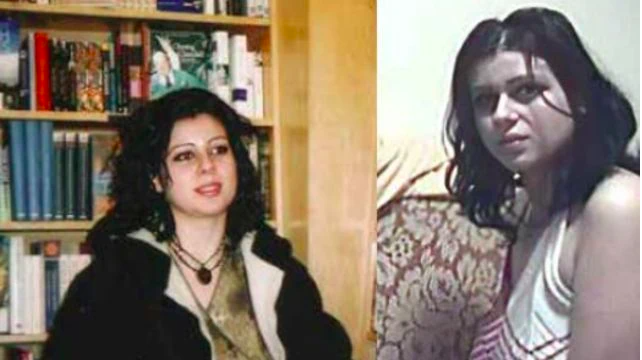“A Pact with the Devil”: Mădălina Dumitru Speaks Out on MISA, Gregorian Bivolaru, and Her Book
by Massimo Introvigne
Bivolaru was once sentenced for a sexual relationship with her when she was 17. She denies it ever occurred — and says she has been offered € 350,000 to change her story.

Bitter Winter has recently reviewed The Broken Flight, the book written by Mădălina Dumitru, a student of the yoga school MISA (Movement of Spiritual Integration into the Absolute), about her relationship with the spiritual group and its leader, Gregorian Bivolaru. We recommend to read this review for the wider context of the prosecution and sentencing of Bivolaru in Romania for an alleged sexual relationship with Mădălina when she was 17. The age of consent in Romania was 14 at that time, but the law regarded sexual relationships between teachers and their students as illegal, and the prosecutor claimed that by teaching yoga to Mădălina, Bivolaru was legally her “teacher.”
Bivolaru has been recently arrested in France but the French events are outside both of the book (written before they occurred) and the substance of this interview, where Mădălina answers some further questions and also comments on more recent, lesser-known incidents.
– Mădălina, everybody has been asking this to you for twenty years, but let’s clarify the point once and for all. Did you ever have a sexual relationship with Gregorian Bivolaru?
– No, never. Bivolaru was the boyfriend of my best friend, Mirona Farcaşi, with whom I shared an apartment. You just wouldn’t do this to your best friend.
– Why did the prosecutors believe you did it?

– In fact, they didn’t. They knew it did not occur. But all their other accusations against Bivolaru had collapsed. They needed a believable charge, so they found this sexual relationship of a teacher with a student. In fact, I took MISA yoga classes with a teacher called Claudiu Trandafir. Bivolaru was never my yoga teacher. If you have read my book, you know I was compelled under duress to sign a false statement that I had a sexual relationship with Bivolaru after having been physically abused and threatened by the police and the prosecutor. I recanted through another statement the next day. The statement they compelled me to sign is the only evidence the prosecutors had. They also fed the media my private journal where I mentioned intimate details of my relationship with my first love, “Grig” or “G,” but even Romanian courts of law understood I was talking of Grigore Ţiplea, not Gregorian Bivolaru. Some tried to claim I had invented the relationship with Ţiplea to protect Bivolaru. For this reason, I publish in the book pictures proving unequivocally I was at a certain moment in a romantic relationship with Ţiplea. The prosecutors also submitted me to a humiliating medical examination to prove I was not a virgin. I wasn’t, as I was in a relation with Remus Lomoş, a good man I would have married had he not died in a car accident, and I had been with Ţiplea before. But this had nothing to do with Bivolaru. You understand how unfair it is to compel me to disclose such intimate and personal details.
– Do you feel that, as a young woman, you were abused?
– Yes. Not by MISA, though, where I was always treated kindly and respectfully. I was abused by the police, during and after the 2004 raid. I was abused by the prosecutors. And I have been abused by the media to this very day.
– Why should we believe you rather than the Romanian police and prosecutors?

– It is not me only. I testified before the Swedish Supreme Court in the case about the asylum request of Bivolaru in Sweden. I told my story, and they declared me a trustworthy and reliable witness. The European Court of Human Rights ruled that in the 2004 raids MISA students were mistreated and abused, their human rights were violated, and they were entitled to claim damages. Two Romanian courts in first and second degree acquitted Bivolaru from the charge of having had a sexual relationship with me, finding my version of the story was true. Among so many courts that looked at the case, only the Romanian Supreme Court in 2013 when it reversed the previous decisions acquitting Bivolaru believed my first false statement, the one signed under duress. In my book, I explain how this unjust decision was politically motivated.
– Do you still play a role in the Bivolaru case?
– As you know, Bivolaru has spent his time in jail on the false charge of having had in 2004 a sexual relationship with me. This case has now ended. He and other MISA leaders have also been found not guilty of the equally false charges of human trafficking, by final decisions. However, Bivolaru is wanted by Finland because some Finnish women accuse him of having “brainwashed” them through videos (he never set foot in Finland) so that they had sex with him in France. This whole Finnish story looks to me just as fabricated as the one I was involved in. Now he has been arrested in France, with charges similar to Finland’s. It seems, however, that I am still important. If they can prove that the charges brought against Bivolaru for its alleged relationship with me were true, perhaps other charges would look true as well. I say this, because recently I was contacted by an English-speaking man through a strange phone call. He offered me money if I would now confirm the accusations against Bivolaru and MISA. He kept increasing the amount up to EUR 350,000. I was proposed a pact with the devil. He said he was part of a team fighting against MISA, that they have interviewed ex-students, and that if I would not cooperate I would pay the price. The man knew personal details about me, and I am persuaded it was not a joke. I cannot help connecting this with a deluge of videos and articles against MISA and Bivolaru that have appeared in the last few months. I know that there are those who will not rest until they manage to destroy MISA. I was told this in so many words by the prosecutor in my case. It has not ended.
About the author
Massimo Introvigne (born June 14, 1955 in Rome) is an Italian sociologist of religions. He is the founder and managing director of the Center for Studies on New Religions (CESNUR), an international network of scholars who study new religious movements. Introvigne is the author of some 70 books and more than 100 articles in the field of sociology of religion. He was the main author of the Enciclopedia delle religioni in Italia (Encyclopedia of Religions in Italy). He is a member of the editorial board for the Interdisciplinary Journal of Research on Religion and of the executive board of University of California Press’ Nova Religio. From January 5 to December 31, 2011, he has served as the “Representative on combating racism, xenophobia and discrimination, with a special focus on discrimination against Christians and members of other religions” of the Organization for Security and Co-operation in Europe (OSCE). From 2012 to 2015 he served as chairperson of the Observatory of Religious Liberty, instituted by the Italian Ministry of Foreign Affairs in order to monitor problems of religious liberty on a worldwide scale.
yogaesoteric
March 19, 2024
Also available in:
 Română
Română
